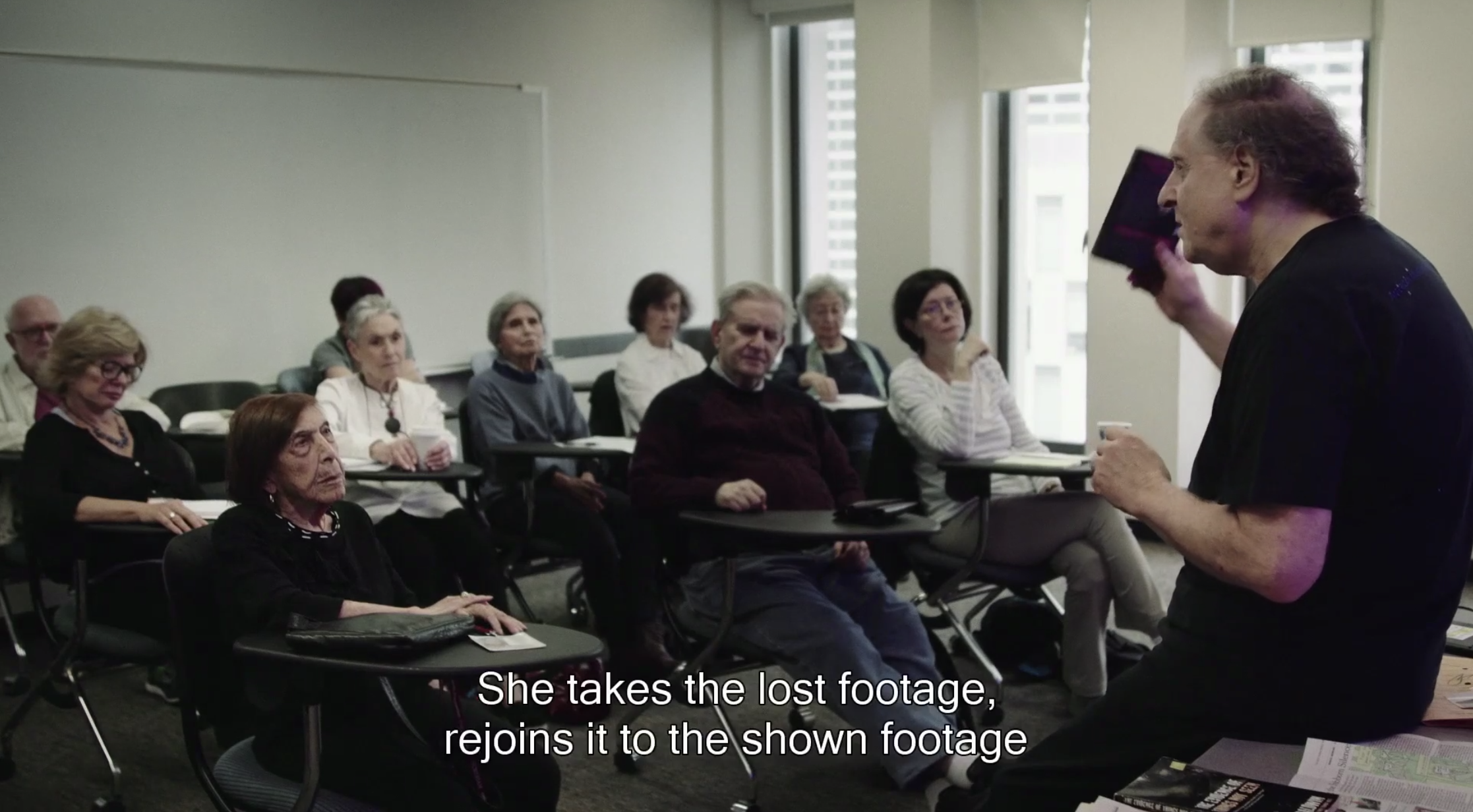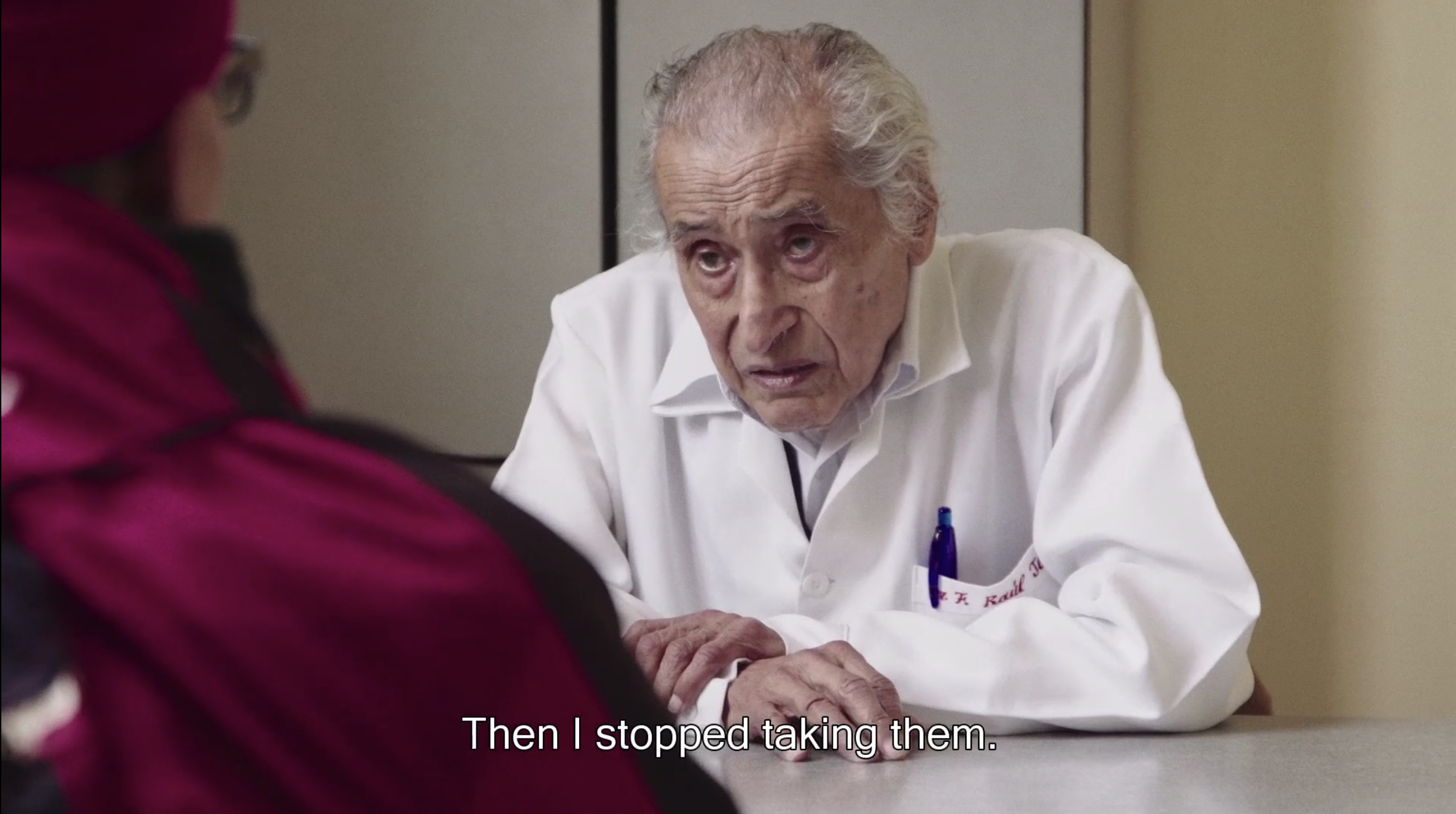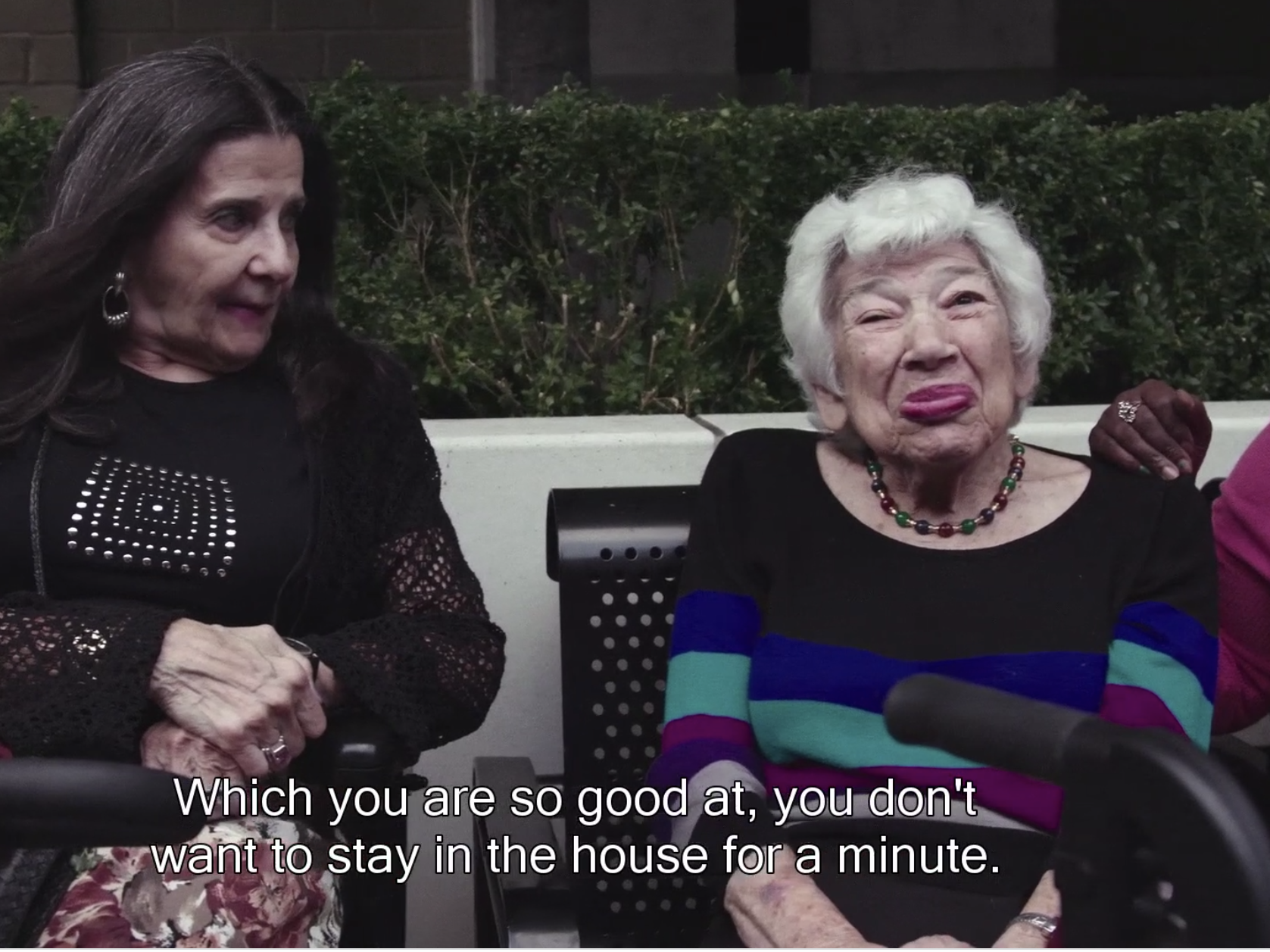
100UP
- The documentary "100UP" follows centenarians around the world living vibrant lives.
- A retired drummer credits her instrument for keeping her active, and another is a lifelong student.
- A doctor still practices to feel useful, and a sex therapist spends little time in her home.
Viola Smith was born in 1912, the six of eight girls. Their father, a musician, required each to learn piano and another instrument before taking the family orchestra on the road.
Smith was the drummer – a role she credited for her longevity in the 2020 documentary "100UP," which is making its US premiere at the DOC NYC film festival this week. The film follows seven vibrant centenarians around the world, highlighting what's kept them ticking.
"My drums were up here," Smith told filmmaker Heddy Honigmann, miming how she'd play above her head. "My doctor told me … with all that exercise I did, I could live umpteen years."
Smith, one of the first female professional drummers, told Honigmann her sisters weren't so lucky.
"If I had been the fifth one, I would have been a trumpet player. If I had been the fourth one, I would have been a trombone player," she said. "So these two girls died early in life. It's the drumming that saved me. It's the exercise."
Here's what three other characters in "100UP" credited for their long lives.

100UP
A woman who fled Austria for New York has staying in school for 42 years
Mathilde Freund was born in Austria in 1916 and fled to Paris in 1937 after the German Army invaded. In the early 1950s, she arrived in New York, working as a social worker before becoming an antique seller, according to a 2018 New York Times profile.
In the film, Freund is shown peddling her wares, swimming, and attending a film class. "I've attended Fordham University for 42 years, and I enjoy my classes. I really do it," she said. "It helps me to live."
Freund also said she eats something that brings her pleasure every day. "Do you know what I like the most?" she asks Honigmann. "Avocados."

100UP
A doctor continues practicing pro bono
The film follows Raul Jeri, a Peruvian physician born in 1918, as he makes rounds in a Lima hospital - testing patients' reflexes and recommending various treatments.
He tells Honigmann maintaining his practice, which he does without pay as an honorary physician, helps distract him from the sadness of his wife's battle with Alzheimer's. The pair enjoyed eight or nine good years together, he said, before she spent the next eight or nine years deteriorating.
At the time of filming, she'd been in a coma for six years.
"You resign yourself to no longer having communication with her, to no longer have any type of exchange, emotions, nothing," Jeri said. "It's tough."
But working in the hospital "helps a lot - you realize that you are useful," he said. "I make positive use of my time while I can."

100UP
A sex therapist says she picks up people on the street to talk to
Shirley Zussman was born in 1915 and worked as a sex therapist alongside her OB-GYN husband. They likened themselves the next Masters and Johnson.
At the time of filming, Zussman said she still sees the occasional long-term patient, but doesn't take on new ones. "I don't feel that at 104, it's a truly responsible thing to take on new patients," she said.
Rather, Zussman spends her time mostly out of the house and meeting people, often at Starbucks. "I want to be out there where it's happening," she said from a park. "I'm a talker, I like to talk to people ... I pick them up on the streets."
Zussman also said her long life is related to having lived a good one. "I would say the other part of it is a lucky life."

